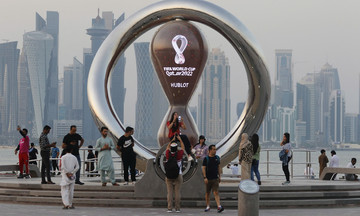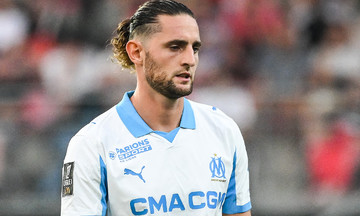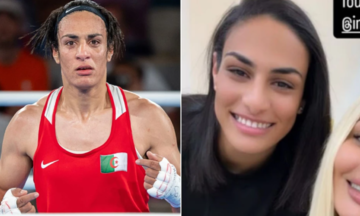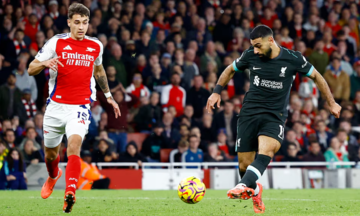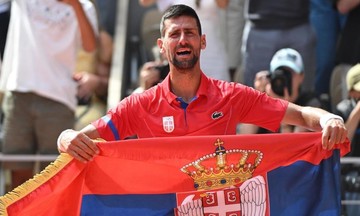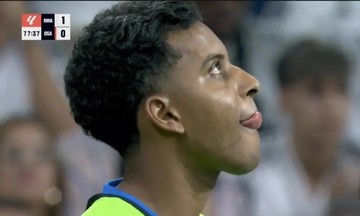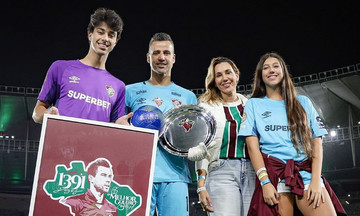Historically, female swimmers peak between the ages of 18 and 20. This fact underscores a concerning trend for the US team at the world championships in Singapore. The team's star, Katie Ledecky, turned 28 in 3/2025.
Beyond Ledecky, the team, once a global powerhouse before Covid-19, lacks prominent figures. The nine-time Olympic gold medalist now carries the weight of American swimming hopes for the Los Angeles 2028 Olympics. She faces challenges including a lack of successors and public funding cuts to universities—the traditional backbone of American swimming—under Donald Trump's second term.
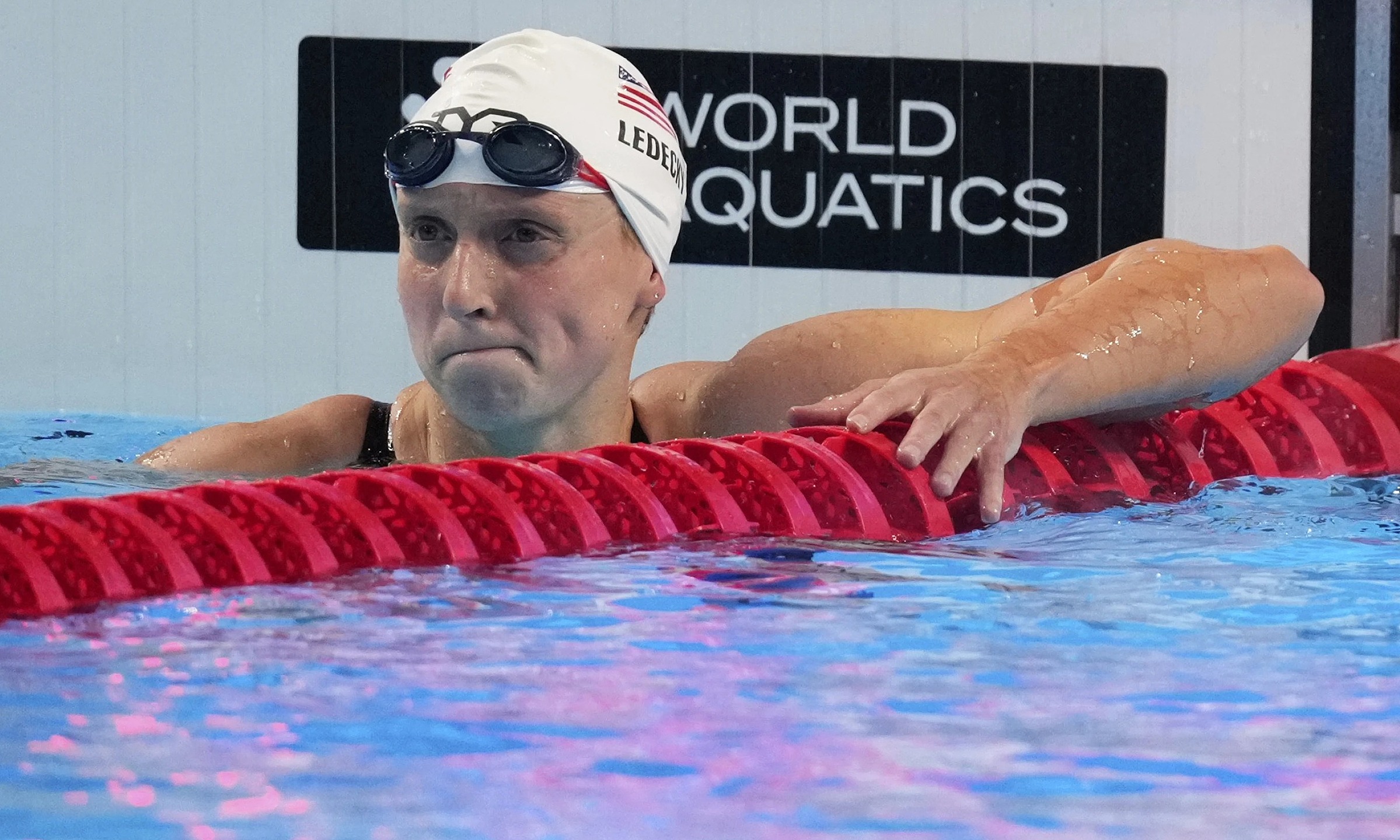 |
Ledecky reflects after an event at the 2025 World Championships in Singapore. Photo: AP |
Ledecky reflects after an event at the 2025 World Championships in Singapore. Photo: AP
Ledecky finished her leg of the 4x200m freestyle relay in 1 minute 53.71 seconds on 31/7. This impressive time is achievable by only five female swimmers in history. One of them, Australian Mollie O'Callaghan, matched Ledecky in the final 200 meters. O'Callaghan had a 0.5-meter advantage at the start because the US team's third swimmer, Erin Gemmel, clocked in at 1 minute 56.72 seconds.
Ledecky had to overcome this deficit against O'Callaghan, a top middle-distance swimmer. With fellow Australian Ariarne Titmus on leave and Canadian Summer McIntosh not participating in the relay, Ledecky and O'Callaghan were the clear standouts. O’Callaghan ultimately touched the wall at 1 minute 53.44 seconds, securing gold for Australia.
The dominant performance of the Australian women, the 2024 Paris Olympic champions, proved too much for Ledecky and the US team. They failed to win any of the four relay events in Singapore.
With 6 gold medals so far—three behind Australia—warning signs persist for the team that dominated international swimming until the pandemic-delayed 2020 Tokyo Olympics.
At the 2024 Paris Olympics, the US hit a low point, winning only 23% of the swimming gold medals (8 of 35), facing strong competition from Australia, France, Canada, and China. This marked a significant drop from their usual 30% to 50% share since 1956. In Singapore, the team is striving to rebound, but significant success remains elusive.
"The team's morale is generally good," said US head coach Steve Meehan after the relay events on 31/7. "I'm pleased with how they're handling the situation and continuing to compete, despite the difficulties we're facing."
Meehan's comments have context. The "difficulties" began during the US team's training camp in Phuket, Thailand, in preparation for the Singapore competition. Upon arrival, USA Swimming reported a gastrointestinal illness outbreak affecting the athletes. Torri Huske, Claire Weinstein, Luca Mijatovic, and several others were severely affected.
This incident explains five losses in individual event qualifiers, where US swimmers failed to reach the semifinals. This extends a losing streak from the Paris Olympics, where 11 US swimmers were eliminated in the morning preliminaries—an unprecedented outcome in the previous four Olympics.
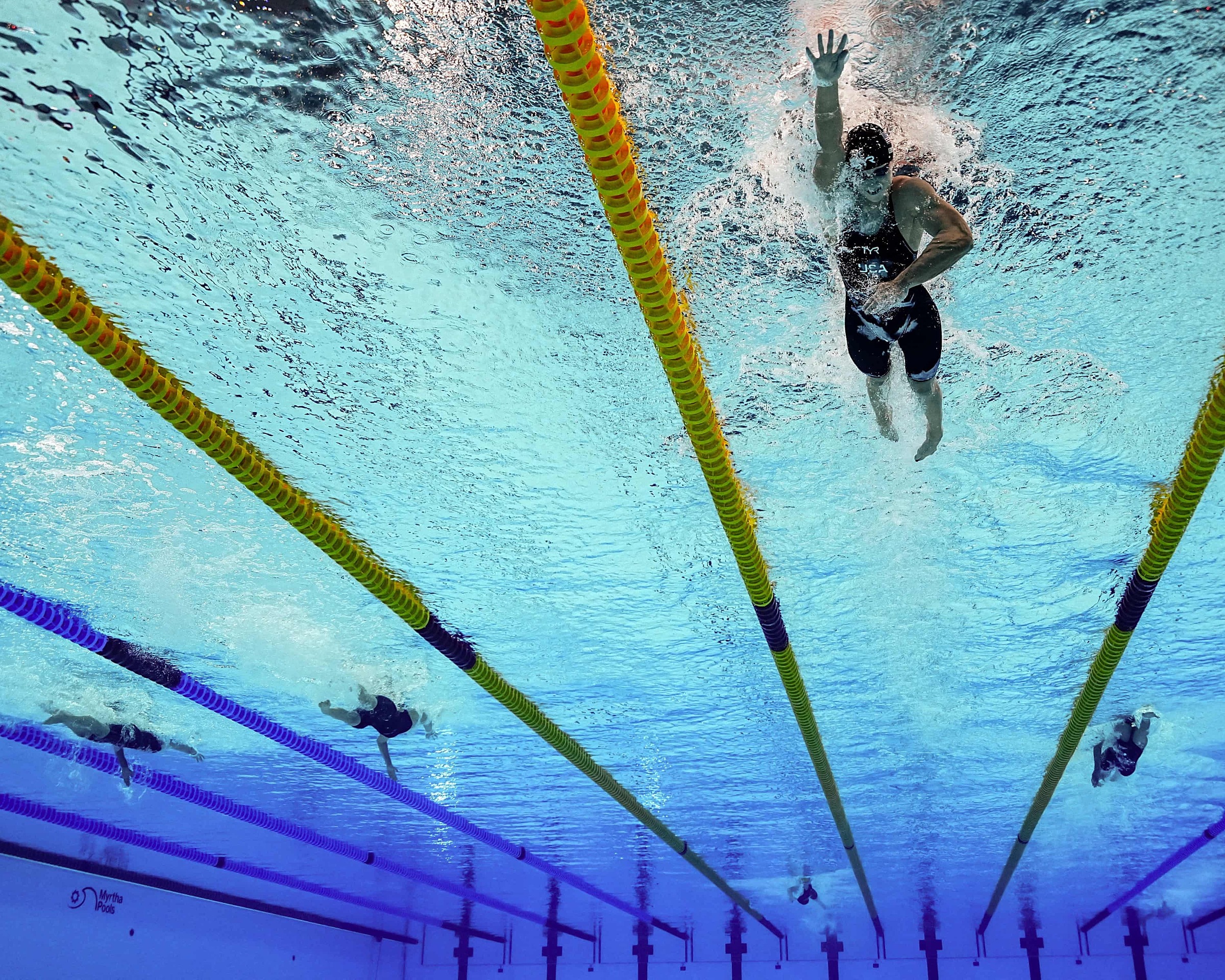 |
Ledecky leads in the 1500m freestyle, which she won for the US team on 29/7. Photo: Reuters |
Ledecky leads in the 1500m freestyle, which she won for the US team on 29/7. Photo: Reuters
Ledecky (1500m freestyle gold), Katharine Berkoff (50m backstroke gold), and Gretchen Walsh (100m butterfly gold) are currently leading the US team. The men's team has yet to make a breakthrough, with the exceptions of James Lichtenstein (27m high diving gold) and Luca Urlando (200m butterfly gold).
"I think in the last 24 hours we've turned a corner," Meehan said, referring to the improvement of the affected athletes. Officially, the gastrointestinal illness caused the US to drop to 12th place in the mixed relay qualifiers on 30/7, a disappointing result. The podium saw an unusual configuration: gold for Russia (competing under a neutral flag), silver for China, and bronze for Canada.
Hoang Thong (via El Pais)



